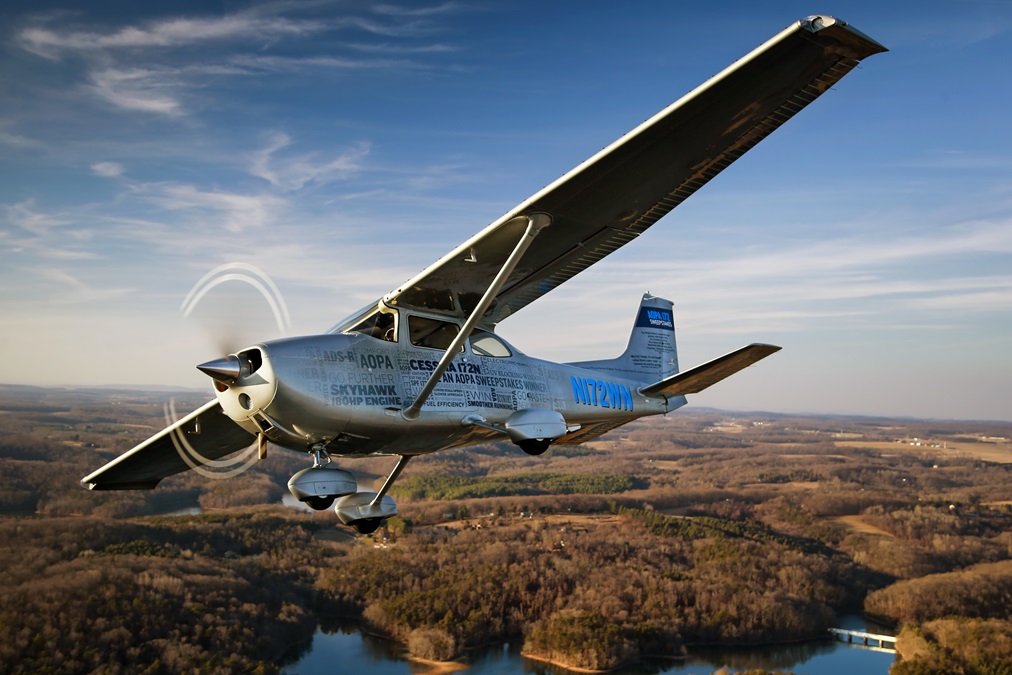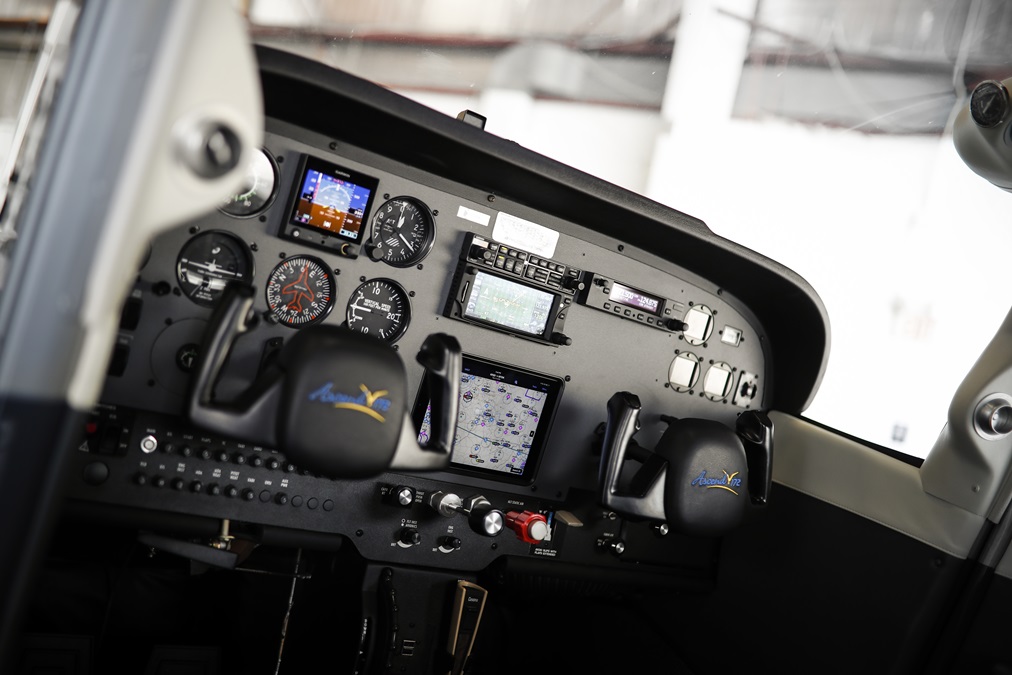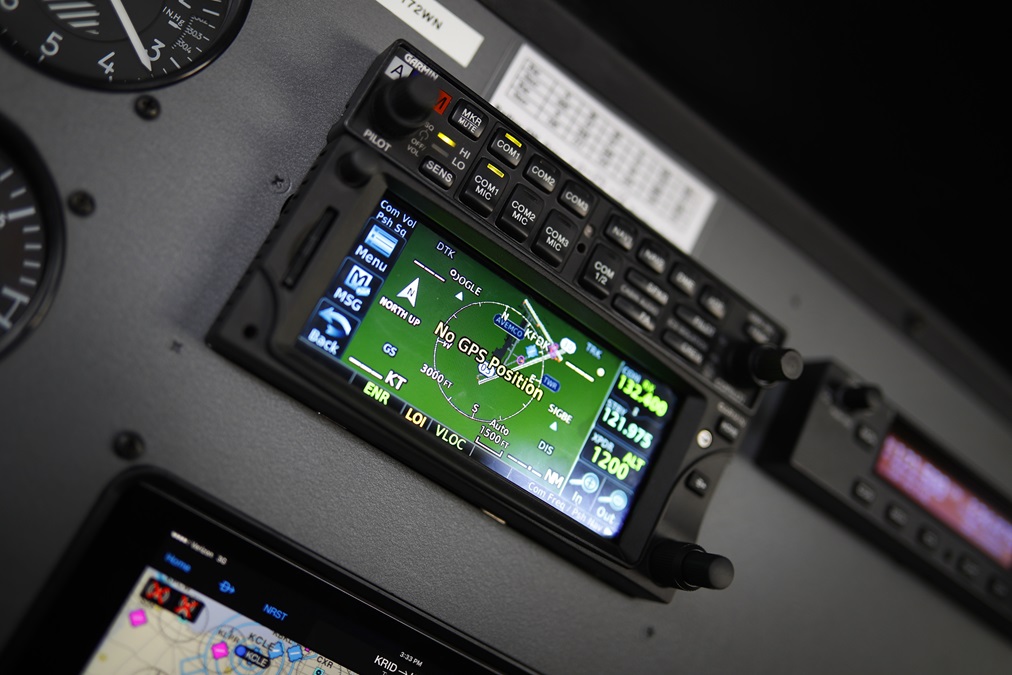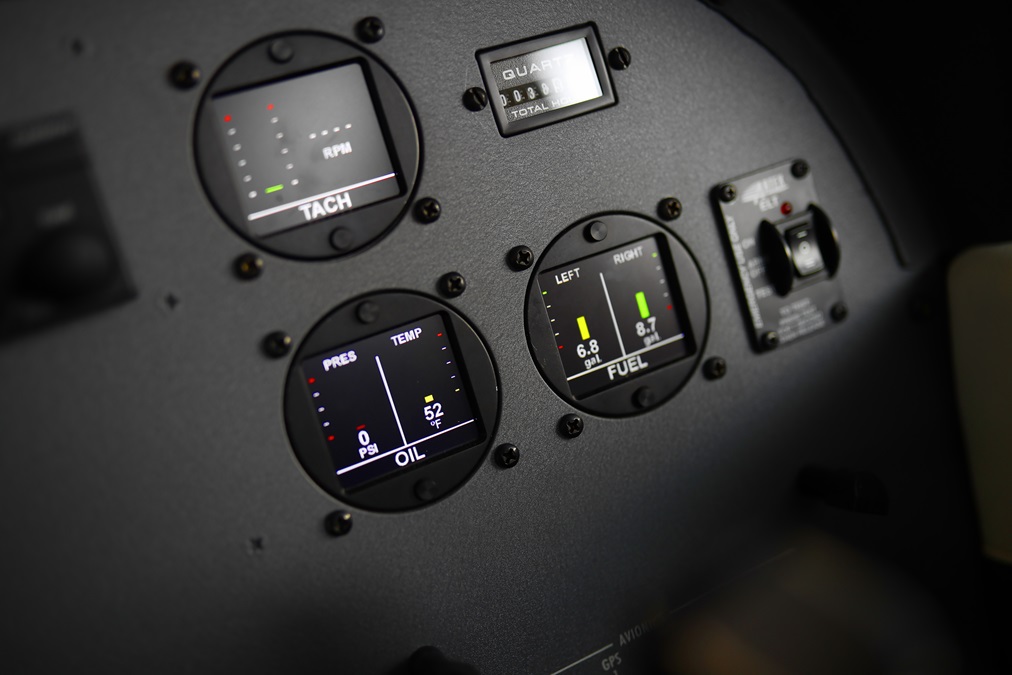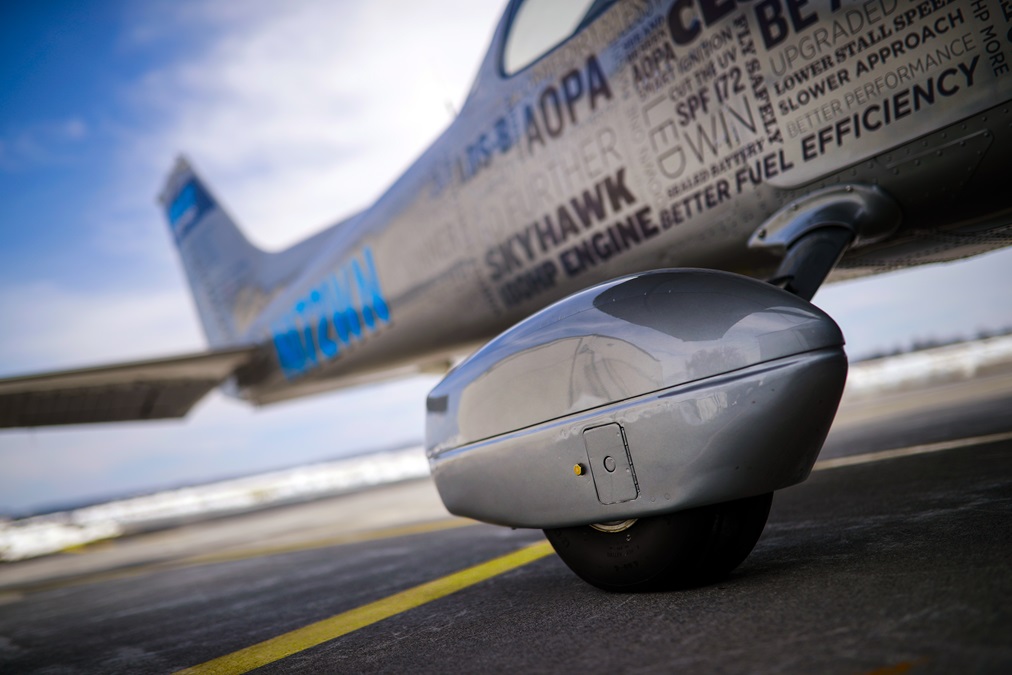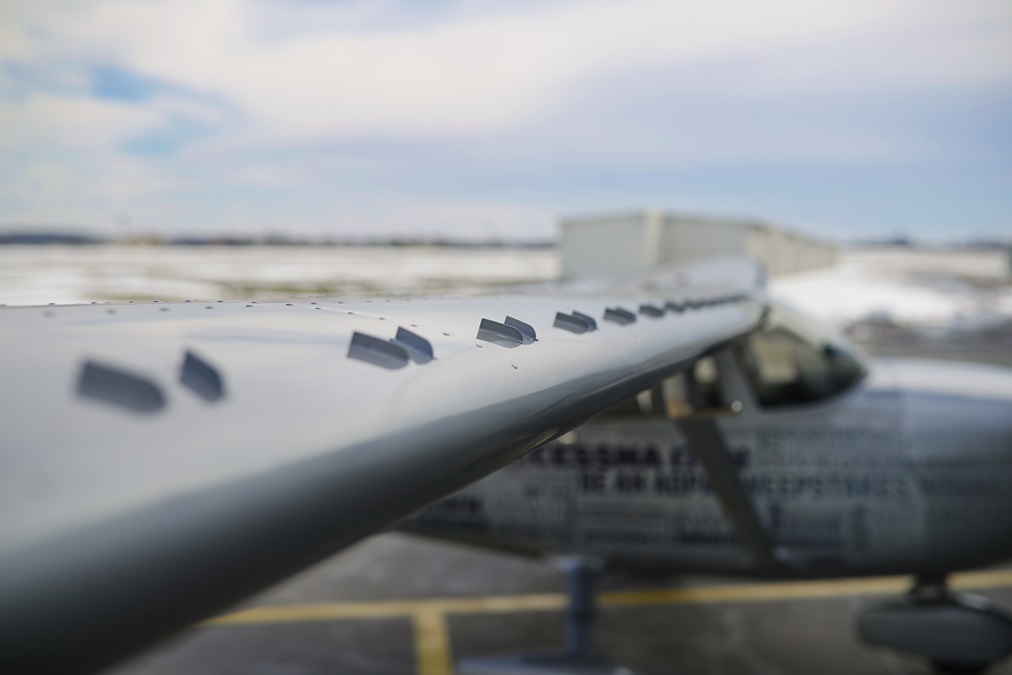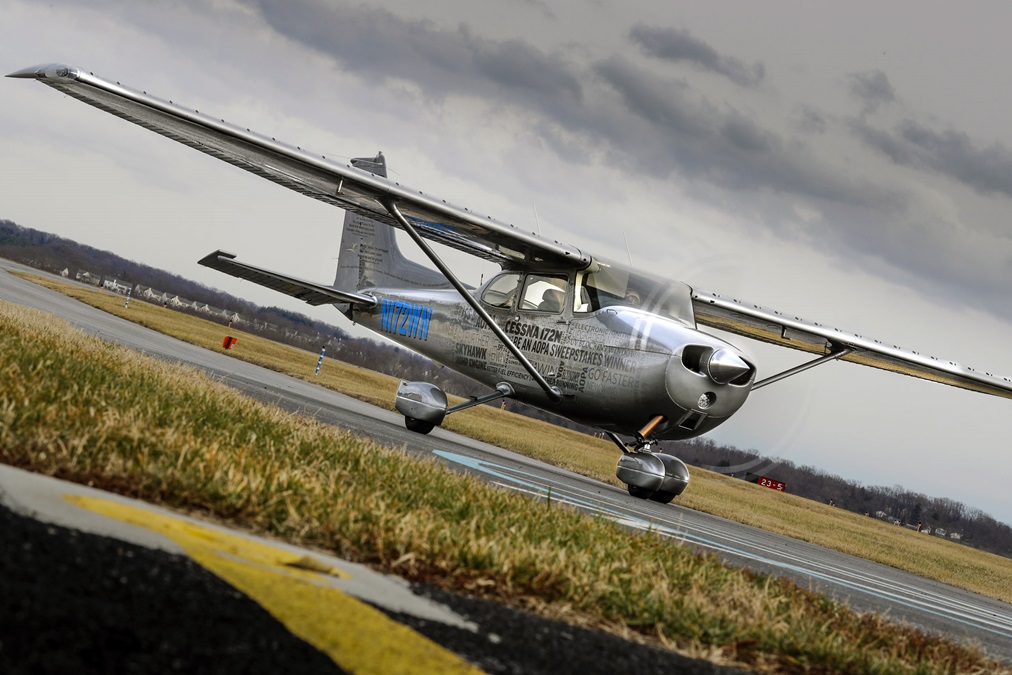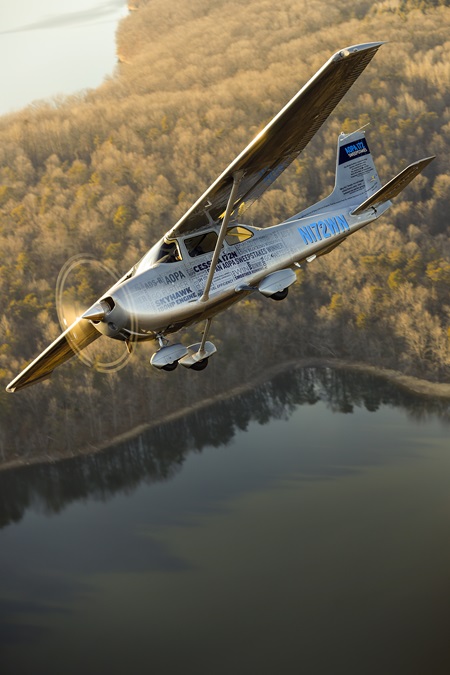The AOPA Sweepstakes 172: New and Improved
Members tell us the stunning base coat, with a hint of metallic, looks like polished metal.The Ascend way
Barring the skins and the handheld microphone, very few parts of Johnson’s 1978 Cessna 172N can be considered original. N739HW—now N172WN—is a wonderful example of how a classic airframe can be brought into the twenty-first century, ready to serve a new generation of pilots with a multitude of innovative features.
The Sweepstakes 172 is the most recent in an industrywide effort to breathe new life into legacy aircraft and provide a more affordable alternative to flying. (AOPA’s 2015 Reimagined 152 was built to like-new standards by Aviat Aircraft in Afton, Wyoming.)
N172WN (172-win, get it?) is the fourth airplane to emerge from Yingling Aviation in Wichita, via Yingling’s Ascend 172 remanufacturing process. Launched in 2015, the Ascend program starts with 172Ns, which are inspected for corrosion and firewall damage. From there, virtually anything that can be replaced or rebuilt is—from control cables or landing gear to the fasteners on the cowling. Contributors to AOPA’s sweepstakes project have made this Skyhawk one of the best you’ll ever see.
Performance all around
A 160-horsepower Lycoming O-320 H2AD was the standard for the 1978 N series. One hundred sixty horses can be a little anemic, so we’ve traded them in for a 180-horsepower Lycoming O-360. The 172XP supplemental type certificate kit from Air Plains Services in Wellington, Kansas, makes it possible (and legal).
And what a difference those extra 20 horses make. When transitioning from my 160-horsepower Piper Cherokee to the 172, the 172’s takeoff roll always manages to surprise me. Rotating at 60 knots, the Sweepstakes 172 is off the ground in a few hundred feet.
The ElectroAir electronic ignition system lets the engine operate more efficiently and we’re seeing fuel consumption 10 to 15 percent less than a typical O-360. The ElectroAir system replaces one magneto. We’d like to have replaced both, but the FAA says that would require an additional alternator for a dual system. So, the remaining magneto functions as a backup to the electronic ignition. The system gives the Sweepstakes 172 not only a simpler start-up but also a nifty pushbutton starter, so the winner will need to use the keys only to lock and unlock the left door and baggage compartment.
Speaking of performance, Knots 2U, in Burlington, Wisconsin, has outfitted our Cessna with a wardrobe of components that reduce drag and make the airplane look sharp. These include wheelpants, dorsal fairings, strut fairings, vertical fin tip, left and right tips for the elevator, a rudder cap, and a rudder butt tip. The curved wheelpants are a big aesthetic improvement over the original oil-tanker-shaped pants.
While we all love to go fast, sometimes we have to go slow. Micro AeroDynamics, in Anacortes, Washington, furnished the Sweepstakes 172 with a full set of micro vortex generators. Installed on the leading edges of the wings as well as the vertical and horizontal stabilizer, the small blades control airflow over the wings by creating vortices that energize the boundary layer. The results are lower stall speeds and improved control authority at low airspeeds and high angles of attack.
Non-TSO standout
Our 1978 Cessna’s avionics were ripe for replacement. (The attitude indicator—which had passed an annual inspection the previous week—failed on the way to Wichita.)
Yingling’s avionics department wasted no time in stripping out the old to make way for the new, and their technicians rolled with the punches as we sought to bring the panel up to date.
AOPA supports industry and government efforts to get lower-cost, modern instruments into legacy aircraft while reducing certification barriers. Our sweepstakes 172 was one of the first certificated aircraft to sport a Garmin G5 electronic attitude indicator. The G5 was installed with a supplemental type certificate rather than a technical standard order. Its clear, bright display—resembling a mini glass panel—was a hit at EAA AirVenture 2016 as pilots discovered it provides altitude, airspeed, and vertical speed, and comes with a four-hour backup battery in the event of an electrical failure.
The remaining analog flight instruments are brand-new. They are matched with Aerospace Logic electronic gauges, giving you a crisp readout for the fuel, oil temperature and pressure, and tachometer.
The FAA has made it easier to install nonrequired safety enhancing equipment (NORSEE), and we’re all in. Garmin’s GI-260 angle of attack indicator is installed atop the panel, providing a quick visual reference during all stages of flight, and an audible alert if a stall becomes imminent.
Another NORSEE addition is the Guardian Avionics iPad mount, sized to hold and charge an iPad mini with a flush-mount design that cools the tablet. The winner of the sweepstakes 172 will get an iPad mini. We’ve been using the Garmin Pilot app on the iPad to display weather and traffic advisories obtained through the Garmin GTX 345 transponder, which is certified for ADS-B In and Out.
A Garmin GTN 650 touchscreen navigator rounds out the panel, along with a Garmin GTR 225 com radio and GMA 340 audio panel. Don’t have much experience with the Garmin 650 series? Neither did I, but you shouldn’t worry: Flight Training Apps is giving the winner a copy of Flying the Garmin GTN 650/750, and you can keep it right on the iPad mini.
Paint
“The ugliest airplane at Oshkosh” (AOPA Editor at Large Dave Hirschman’s description, not mine) won’t hold that title this year.
In November 2016, the airplane’s red and blue on white scheme was replaced with a base coat of Sherwin-Williams Aerospace Ice Silver Acryglo. Members tell us the stunning base coat, with a hint of metallic, looks like polished metal (see “Dressed to the Nines,” p. 54).
While our sweepstakes 172 was getting its initial paint, the shop discovered and repaired some corrosion in the wings. The former N739HW had sat inside a hangar for 15 years. It’s surprising—but not out of the realm of possibility—that corrosion would set in even when the airplane was protected from the elements.
A sharp accompaniment to the new paint is the new window glass provided by LP Aero Plastics, in Jeannette, Pennsylvania. The solar-gray tinted material cuts cockpit temperatures 10 to 30 degrees Fahrenheit—and, sitting on the ramp at Wichita one July day, we can attest that it makes a difference in comfort level.
That new-airplane scent
Yingling’s interior shop, renown for creating the Cessna Caravan Oasis interior, has also created custom designs for actor Harrison Ford, FIJI Water, and many others. You can see that attention to detail in the upholstery and finish of our sweepstakes 172. The gray Ultraleather is butter-soft but more durable and easier to clean, and it’s certain to hold its appeal for a long time. The flooring, supplied by VASI Aerospace of Wichita, is a perfect match.
Comfort is important, but safety is key. That’s why our sweepstakes 172 has airbag seatbelts for pilot and right-seat passenger, provided by AmSafe, in Phoenix, Arizona. This technology wasn’t available for cars, let alone general aviation airplanes, when N739HW emerged from the Cessna factory in 1978. About 80 percent of new GA aircraft use AmSafe’s airbag system (see “Briefing: AmSafe Airbag, March 2017 AOPA Pilot).
With so many new features, this sweepstakes Cessna is the 172 of your dreams. Will you be the winner?
Email [email protected]
AOPA thanks these sponsors for their generous donations to the AOPA 172 Sweepstakes

